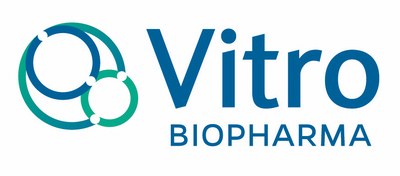Anti-Aging Effects of AlloRx Stem Cell Therapy & Stemulife
Anti-Aging Effects of AlloRx Stem Cell Therapy & Stemulife
As we age, our cells get sick and die. When a cell dies, it creates a cascade of events, leading to inflammation and disease that can decrease lifespan. Many environmental factors accelerate aging such as stress, pollution, lifestyle, injuries, disease, and exposure to toxins. A recently published study reviewed evidence that delaying and reversing aging in cells is feasible. Epigenetic changes drive aging and reversal of these changes extend lifespan1.
Epigenetic control of gene expression occurs by chemical modification of DNA. By choosing an active lifestyle and decreasing harmful environmental factors, aging can be delayed. Fitore Stemulife™ by Vitro Biopharma stimulates stem cell activation, promoting optimal health, along with epigenetic effects that allow proper DNA repair to occur.
Stem cells act as a repair system for the body and rejuvenate and replace aging cells to maintain health. Vitro Biopharma’s AlloRx™ Stem Cells are the youngest, most vibrant adult mesenchymal stem cells (MSC’s) available. They are derived from ethically sourced, donated umbilical cords that are rigorously tested for infectious agents and medical history. The potency, migration and differentiation capacity of AlloRx™ Stem Cells significantly out-perform other MSC’s derived from bone marrow, fat and other sources. AlloRx™ Stem Cells exhibit numerous anti-inflammatory effects by migrating to sites of injury and disease. Macrophages are a type of blood cell that removes infectious agents and dead cells from the blood that can create inflammation (M1) and/or reduce inflammation (M2). M1 macrophages are associated with accelerated aging and M2 macrophages are anti-aging2. AlloRx Stem Cells™ shift M1 macrophages to M2 and the shift from the M1 to M2 is also induced by Stemulife™, providing further anti-inflammatory effects.
AlloRx Stem Cells
AlloRxTM Stem Cells also maintain mitochondrial health (the powerhouse of the cell) by intercellular communication through tunneling nanotubes (see below)3. This system senses mitochondrial status of patient’s cells and physically transfers mitochondria from stem cells to unhealthy patient cells. Stemulife™ increases the expression of the anti-aging gene SIRT-1 by 200-300-fold resulting in life extension1. Stemulife™ also increases expression of genes involved with stem cell differentiation capacity, migration, and production of proteins responsive to stress that provide cellular protection.

Vitro Biopharma Has Partnered With DVC Stem
Vitro Biopharma and its partner DVC Stem in Grand Cayman offer AlloRx™ Stem Cell/Stemulife™ therapy for a variety of inflammatory conditions, including aging. No adverse events have been observed and immunological markers of inflammation are reduced. The therapies have resulted in significant improvement in telomere length in certain cells. Telomeres are the protective caps at the end of DNA stands that shorten as we age. As they shorten, cell division is reduced, eventually leading to cell death. Telomeres act as the aging clock in every cell. Also, quality of life metrics improves including overall well-being, physical performance and enhanced performance of cardiovascular, renal and pulmonary systems.
By Jim Musick, Ph.D., CEO and CSO of Vitro Biopharma/Vitro Diagnostics, Inc.; Tiana States, MS, COO, Vitro Biopharma.
References:
- Zhang W, et al, The Ageing Epigenome and Its Rejuvenation, Nature Reviews Molecular Cell Biology (2020).
- Hardeland, R, Melatonin and the Pro- and Anti-Inflammatory Networks. International Journal of Molecular Sciences 20: 1223, 2019
- Nawaz, M & Fatina, F, Extracellular Tunneling Nanotubes and Cellular Interplay: Synergies and Missing Links. Front. Mol.Biosci. 18 July 2017

